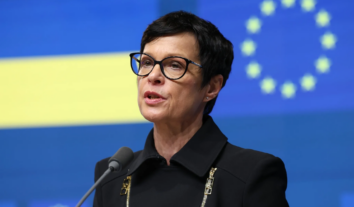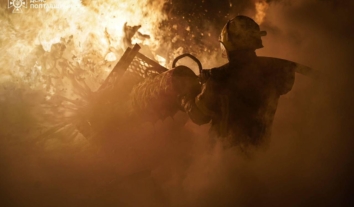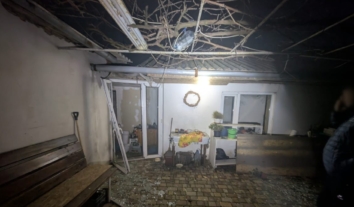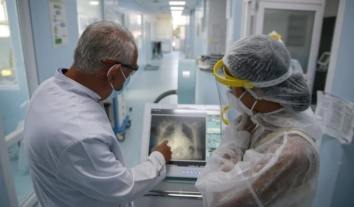Competition of prosecutors. Sad post factum
The employees of the local prosecutor’s offices, who were selected through testing and interviews, start their work today. The experts note that the information campaign of this stage of the reform was rather inefficient as the lawyers did not want to apply for the job due to low salaries and the selection commission worked in a way to prevent the people who sought to change the system from taking up posts.
Quantity and quality
Maryna Tsapok from the Prosecutor General’s Office department for reforms and quality of work presented the results of the selection of candidates. According to her, the competition was important, but the final decision on the appointment of managers was still made by the people inside the system.
7,980 prosecutors worked in the district prosecutor’s offices prior to the competition. After the competition, 5,850 prosecutors come for the posts in the local prosecutor’s offices, who start to work today. That is, the staff will be reduced by 25%.
“The prosecutors underwent the two-stage testing for knowledge of legislation and general skills,” Maryna Tsapok said.
More than 5,000 candidates applied for the competition. 2,600 of them participated in the interviews with the competition commissions. 930 candidates were recommended for appointment after the interviews, of whom 53% were not the heads of the district prosecutor’s offices and 8% were not the employees of the prosecutor’s offices.
Among those who entered the groups of finalists, 52% were former heads of district and city prosecutor’s offices, 45% were people who did not hold senior posts, 3% were external candidates.
From these groups, the Prosecutor General appointed 154 heads of prosecutor’s offices: 71% of them were former chief executives, 16% did not hold senior posts, 13% were former first deputies, and there were no external candidates.
Maryna Tsapok notes that the overall skill level of the prosecutor’s office has improved and the senior positions are held by people with a high level of competence.
However, the motivation in the competition for positions of heads was very low and it was difficult to choose a candidate who could compete on the stage of interviews.
“The final result of the appointment of the prosecutor does not depend on the competition,” the expert says.
The competition and the testing produced effect. A very successful move was involvement of the public in checking the honesty of candidates. However, the result was much affected by the final appointment of the candidates by the political figure.
Why didn’t the lawyers come?
According to MP Anton Herashchenko, a major problem of the competition was that higher salaries for future chief executives of the local prosecutor’s office were not announced. If the chief executives dealt with one district before, now they will work in 4-5 districts.

“We expected the lawyers to come. However, the lack of clear motivation with regard to salary prevented those who would like to work as the local prosecutors from applying for the job. Although the barriers concerning compulsory work experience were removed,” Herashchenko said.
The MP cited the example of patrol police, whose salary had been announced at the level of UAH 8,000, being four times as much as the salary of an employee of patrol and traffic police.
“I believe that the local prosecutors should be paid at least UAH 20,000 or even more so that they would not be corrupt and could support their families,” the MP said.
Running around a circle
According to secretary of the competition committee for selection of employees of the local prosecutors’ offices Denys Monastyrsky, a lot of pressure was felt on the part of prosecutors. He noted that the commission actually “aimed to not allow people who seek to change the system to hold the posts.” Some members of the commission, Monastyrsky said, were convinced that “it is necessary to choose the strongest“, i.e. those who had the most extensive experience of work in the prosecutor’s office.
“We agree that the head should be the representative of the prosecutor’s office. However, the deputies, the first deputies may be the people with management experience and motivation to change the prosecutor’s office,” the secretary of the commission says.
According to him, the commission got many complaints of the citizens about dishonesty of some of the candidates, and such candidates were not selected.
Denys Monastyrsky also notes that the Prosecutor General, when choosing from a trio of candidates, listened to less than half of the recommendations. In other cases, he appointed not the candidate, whom the commission recommended as the first-rated.
Different candidates
Monastyrsky also says that the admission threshold, the minimum admission score, was not set. So, the commissions had to decide on admission of only 15 candidates for many prosecutor’s offices.
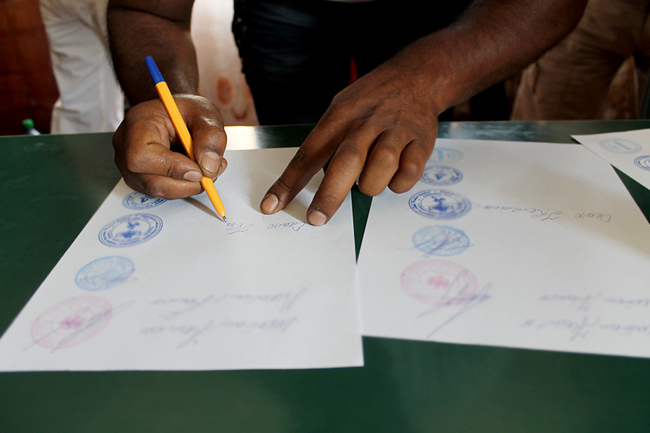
“It was a sort of mockery since the incumbent senior executives knew nothing about the reforms and did not understand what they were doing at their posts, having worked for 5-10 years. But there were no candidates to choose from,” the expert says.
There were also some nuances with the external candidates.
“There were many so-called ‘fixers’ among them. Earlier, those people went to the prosecutor’s office, bribed, and then decided to fill the vacancies in the prosecutor’s offices and get bribes. The lawyers’ community gave very negative comments on these candidates,” Monastyrsky said.
The drawback of the organization was the fact that the competition for positions in the local prosecutor’s offices began in summer, and few people knew about the reform.





